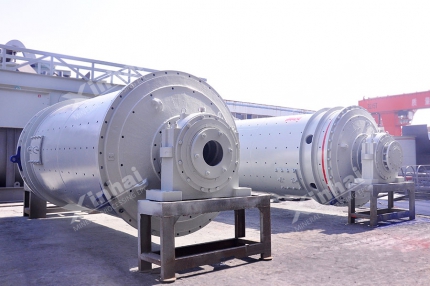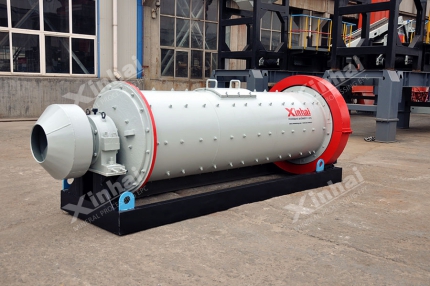Graphite and diamond are allotropes, both composed of carbon, and are minerals formed by high temperature, high pressure and billions of years of geological movement. Natural graphite ore is a non-renewable resource and an indispensable raw material for today's global high-tech and cutting-edge products. Therefore, graphite resources are important strategic resources for the country. With the explosive growth of electric vehicles in recent years, the demand for natural graphite in the future industry will also enter a stage of rapid growth. Selecting and developing new mineral processing technology is one of the important ways to protect and fully utilize graphite resources. The following article will introduce you to the application of a grinding and flotation technology in graphite ore processing.
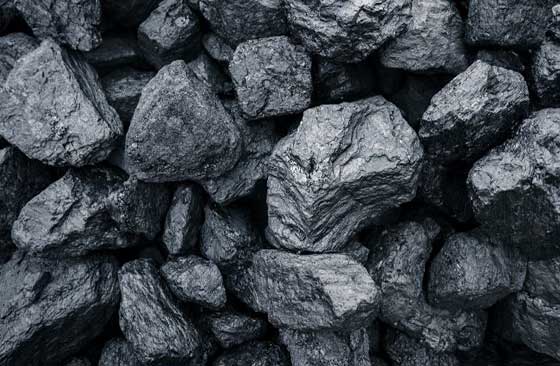
Use the table of contents below to navigate through the guide:
01Grinding and flotation process of graphite ore
The important basis for measuring the value of flake graphite ore is the size of graphite flakes and the fixed carbon content. The concentrate measurement index produced in the beneficiation process depends on the dissociation mode, dissociation degree and subsequent beneficiation process of the minerals. The dissociation of minerals is mainly achieved through the grinding process. Different grinding processes and grinding equipment have different effects on the stripping and protection of graphite flakes. A large number of practices have proved that the use of ball mills will seriously damage graphite flakes during the grinding process, while the use of grinding equipment with rods, columns and barrels as media can effectively protect large flakes.
In addition to the grinding process, the flotation process also has an important impact on the quality of graphite ore concentrate. After the concentrate is pre-classified, the qualified large flake graphite concentrate is separated in a certain selection operation, which can greatly reduce the loss of large flake graphite and is also the most effective process for protecting graphite flakes. In addition, the use of reagents in the flotation process will also affect the quality of flake graphite concentrate. Therefore, while paying attention to the selection of flotation process, we should also pay attention to the formulation of reagent system.

02Rough selection stage of graphite ore grinding and flotation process
A certain graphite ore is a crystalline flake graphite ore, which is mostly in the form of self-shaped flake crystals, and some are distributed in irregular, strip-like or impregnated shapes. Some graphite in the ore is in direct contact with other minerals, and some are irregular and closely coexist with gangue minerals. When gangue minerals are intercalated between graphite layers, the enrichment of graphite concentrate will be seriously affected. Since graphite ore has good natural floatability, a high recovery rate can be obtained even in the case of coarse particle size, which is conducive to protecting large graphite flakes. Good selectivity also ensures that high-quality concentrate can be obtained even under the condition of coarse grinding particle size. And with the increase of grinding fineness, the fixed carbon content and recovery rate in the concentrate will gradually increase, and the fixed carbon content will increase rapidly while the recovery rate will increase slowly. In order to protect large graphite flakes, it is necessary to determine the appropriate grinding fineness.
After grinding, graphite ore enters the roughing stage. Flotation agents are added to the pulp to improve the flotation efficiency. Commonly used flotation agents include water glass, calcium oxide, kerosene and pine oil. After a period of stirring, flotation can obtain coarse concentrate and tailings. During the flotation process, the amount of reagents used and the method of addition should be determined according to the results of the mineral processing test to avoid the uncoordinated effects of various reagents, which will be counterproductive.
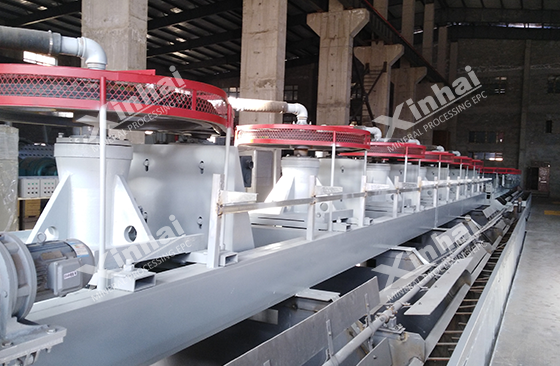
03Pre-separation process of graphite ore grinding and flotation process
After three times of regrinding and three times of beneficiation, the crude concentrate is screened to obtain concentrate products with qualified particle size. The remaining products continue to be beneficiated. After three regrindings and five beneficiations, the fixed carbon content is high enough. of concentrate products. The pre-separation process can achieve a higher recovery rate than the conventional process, and its protective effect on large flake graphite is also significantly better than the conventional process. Therefore, pre-separating and processing high-grade large-scale flake concentrate can reduce the loss of large-scale graphite during the grinding process, which has positive significance for the efficient utilization of mineral resources.

The above is a brief introduction to the graphite ore grinding and flotation process. In the graphite ore beneficiation process, the grinding and flotation process has an important impact on the quality of the concentrate and the flotation results. In order to efficiently utilize graphite ore resources, the ore can be beneficiated. Experimental analysis is conducted to determine the appropriate mineral processing process to avoid wasting mineral resources.


 marketing@ytxinhai.com
marketing@ytxinhai.com  0086 13810327080
0086 13810327080 




























































































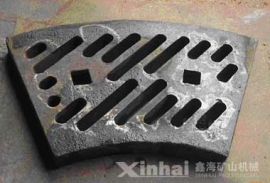









 CHAT
CHAT MESSAGE
MESSAGE



.jpg)
